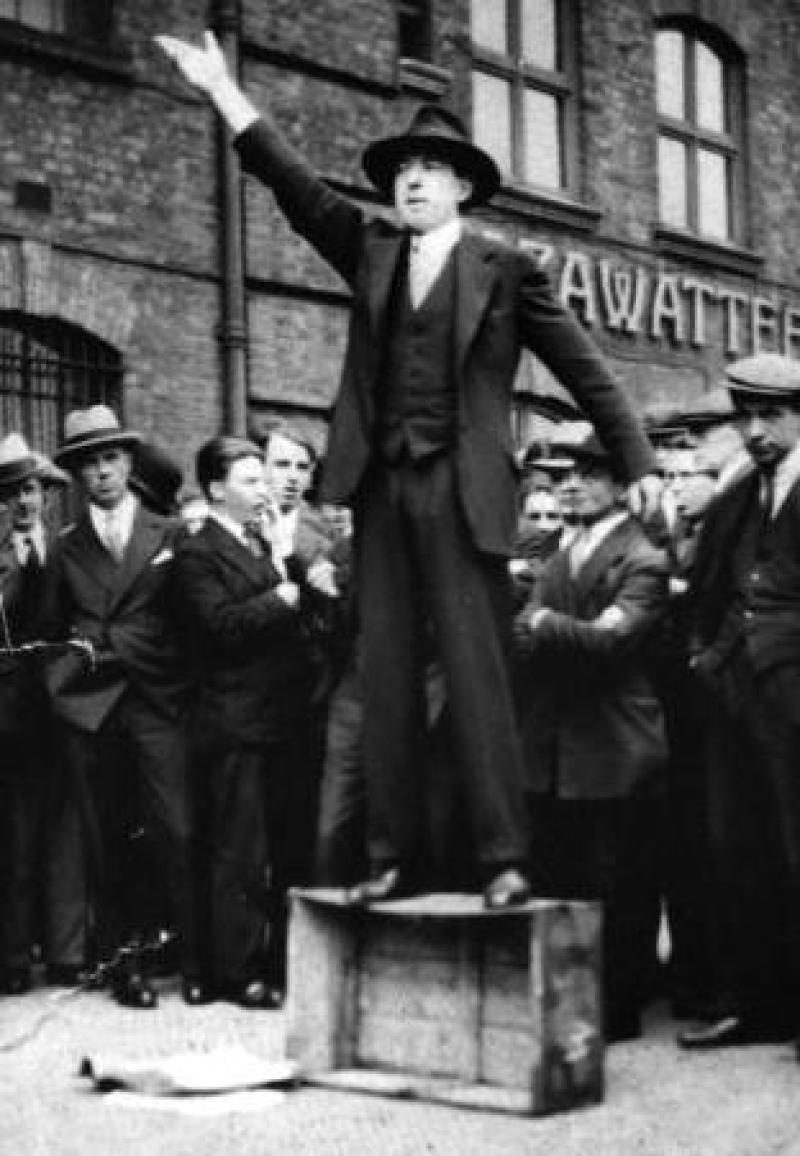Fundamentalists and Liberals: What’s The Difference?



It’s an all-too easy label to slap on somebody: “You’re a liberal!” or, “You’re a fundamentalist!” But what do those labels actually mean, and what are the implications of calling someone a liberal or a fundamentalist? The most obvious answer is that it pigeonholes people into convenient boxes. Just recently, I’ve been called a “liberal” because I dared to make some critical comments about Donald Trump; I’ve been called a “liberal” because I dared to question some aspects of the traditional church. But I don’t consider myself a liberal, or a fundamentalist, at all. However, it’s an easy label to put on someone in order to satisfy yourself that you’ve indeed “put them in their place, and told them a thing or two!”
I could cite a whole series of popular conceptions of the two sides. For example: on the one hand, a liberal is one who is some sort of “left-leaning person,” whether politically or theologically. Liberals tend to be more open and tolerant of alternative lifestyles also. Fundamentalists, on the other hand, are more “right-leaning,” both politically and theologically, and would tend to be less tolerant of alternative lifestyles. Liberals may well generally vote Democrat; fundamentalists tend to vote Republican.
Biblically, liberals tend to question the historicity of the Scriptures, the miracles of Jesus, and emphasize the human nature of the written text, which could explain apparent mistakes or contradictions. Conversely, fundamentalists tend to emphasize the divine nature of the writing of the Bible, inspiration and inerrancy, and oftentimes hold to a more literal hermeneutic: “God said it, I believe it, and that settles it!” And the comparisons could go on.
But where do these (oftentimes) sharp divisions come from? When exactly did the liberal and the fundamentalist movements arise, and what is the legacy of both traditions today?
In these series of articles, I’ll explore not just the historical background that gave rise to the liberal and fundamentalist movements, but also begin to explore the Christian right and its heavy involvement in–and influence of–American politics.



More from the article:
On the basis of the social gospel, which liberals saw as consistent with the example modeled by the historical Jesus, modernists hoped both to construct and sustain a “Christian civilization.” Moreover, liberals questioned many of the doctrinal beliefs held by the fundamentalists, which they perceived to be intolerant, narrow, militant and dogmatic. They probed the historicity (and legitimacy, as they saw it) of cardinal doctrines held by the fundamentalists such as: Christ’s virgin birth, the mechanical dictation model of infallible scriptural inspiration, and the literal return of Christ to earth to establish his 1,000-year kingdom. [14]
Liberals, by contrast, viewed the gospels (as well as the rest of Scripture) as not necessarily historically accurate, and questioned many of the miraculous events written about Jesus as to whether or not they were legitimate, largely on scientific grounds. Although they may not have believed in the “Jesus of the Gospels” per se, what they took away from the Gospels was the faith of the disciples, who did believe in him, and that was the most important element to retain. Jesus, in many ways, became more of a religious teacher, but his divinity and miracles were questioned. This obviously alarmed the fundamentalists, who felt that the liberals were abandoning historic Christianity in order to reconcile their faith–and the Bible–with the findings of modern science and biblical historical criticism, which tended to originate from liberal German biblical scholars and theologians. Bultmann, for example, sought to “de-mythologize” the Bible, and this type of thinking seriously worried and upset many conservatives.
Conservative Fundamentalists
On the opposite side of the debate were the fundamentalists, who viewed themselves as the sole defenders of the Bible against the attacks of its detractors, the liberals. These exclusivists held that even when the Bible appeared to conflict with modern science, the gospel of personal salvation was still clear—and that was all that was deemed necessary. [15] Fundamentalists sought to uphold certain core doctrinal beliefs they believed essential to preserving historic Christianity, and were concerned the liberals were abandoning. These included such tenets as the miracles in Scripture, the Mosaic authorship of the Pentateuch, the virgin birth of Christ, biblical inspiration and inerrancy, the substitionary atonement of Christ, and the second coming of Christ to set up a literal millennial kingdom on Earth. These core doctrines, they maintained, were the “fundamentals” of the faith–and thus the name “fundamentalist” was born.
Moreover, fundamentalists censured liberals for what they saw as total abandonment of orthodox Christianity. Machen would even go so far as to charge that liberalism “is not Christianity at all, but a religion which is so entirely different from Christianity as to belong in a distinct category.” [16] In 1910, five hundred conservative ministers and church leaders signed a fighting manifesto, ‘Back to the Fundamentals,’” while journals such as The Presbyterian and The Herald and Presbyter launched conservative crusades against theological liberals. [17]